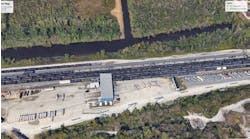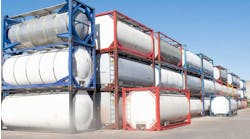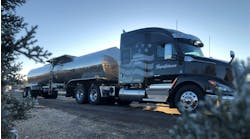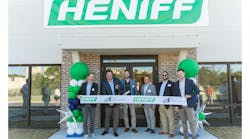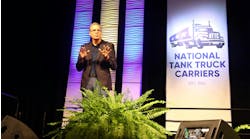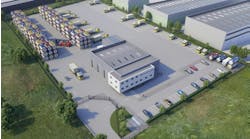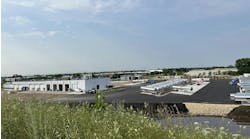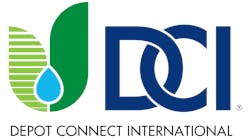Indian River adding more foodgrade cleaning capacity to meet customer needs
INDIAN River Transport Co continues to expand its network foodgrade tank cleaning facilities. The newest location in Bensalem, Pennsylvania, opened in early 2018.
This is just the newest of seven foodgrade wash racks in the Indian River system. More potential wash rack locations are under consideration by the Winter Haven, Florida-based food hauler. All of the wash racks have Juice Processor Association and Kosher certifications.
The primary focus of those wash racks is to support the Indian River tank truck fleet that includes 700 tractors and 950 tank trailers operating across the United States, Canada, and Mexico hauling a wide variety of bulk liquid foods ranging from fruit juices and dairy products to beverage alcohol.
“Foodgrade hauling is becoming more of a regional operation in many of the areas we serve, and we can save money by building our own wash racks,” says Richard Hunter, Indian River sanitation & facility compliance manager. “In all the sites now under consideration, we had been using commercial wash racks. Our transports also have had to park at truck stops.
“Shippers have encouraged us to build more of our own wash racks. The Food and Drug Administration’s safe food transport rules also are pushing us in that direction.”
New facilities
In addition to the just-opened two-bay wash rack in Bensalem, Indian River also built new tank trailer cleaning facilities in Mission, Texas (two wash bays) and Visalia, California (a single wash bay) over the past year.
The foodgrade tank cleaning network includes two four-bay cleaning facilities are at the headquarters terminal in Winter Haven and Clovis, New Mexico. Two-bay wash racks are operating at terminals in Ft Wayne, Indiana, and Cordele, Georgia.
Anticipating the need for still more tank cleaning capacity, management has proposed a two-bay wash rack in Grandview, Washington, that could be up and running in late 2018.
The new foodgrade wash racks in Bensalem and Mission provide good examples of the type of facilities the tank truck carrier wants to build going forward. Both facilities combine tank wash services with a full-service fleet terminal. Both locations also offer commercial tank cleaning.
Bensalem rack
In Bensalem, Indian River bought a 10-acre location that had been used previously as a truck fleet terminal. The property included a 3,360-sq-ft office building that has been completely refurbished and expanded. With the renovation, the facility has grown to 18,500 square feet.
Located at 1528 Bristol Pike in Bensalem, the facility is a full-service terminal for Indian River fleet. The office building includes offices for terminal management and support staff. A conference room also doubles as a training room for drivers, wash workers, and mechanics.
In the expanded section, the facility includes two vehicle maintenance bays, two tank trailer cleaning bays, a vehicle exterior wash bay, a boiler room, and a cleaning chemical storage room. Parking at the terminal can accommodate 30 tractors and 87 tank trailers.
Indian River fleet operations in the Bensalem area primarily handle juices and some dairy products.
Ten tank washers keep the cleaning operation running across two shifts—one running from 7 am to 2 pm daily, and the second continuing from 2 pm until 11 pm. The terminal plans to hire up to five vehicle mechanics, who will handle routine maintenance for the Indian River fleet.
The foodgrade tank cleaning system consists of a newly developed vat-style unit from EcoLab. Indian River installed two of the skid-mounted stainless steel wash units in the Bensalem wash rack. These wash systems include Allen-Bradley PLC controllers, a 5400 CIP controller, and 3-D TraSer data collection module, Alfa Laval pumps and valves, Interquip heat exchangers, and EcoLab SB-8 sprayballs. Most of the cleaning solutions are from EcoLab.
“We believe EcoLab provides the best foodgrade tank cleaning equipment for our operation,” Hunter says. “We use a chlorinated detergent and foodgrade phosphoric acid sanitizer. Our JPA cleans are done at 208 F and Kosher cleaning requires 210 F.”
Also part of the cleaning operation are two Peacock pressure washers. A 150-horsepower Cleaver-Brooks boiler provides 6,000 pounds of steam per hour.
Worker safety and productivity were very much in mind when both the Bensalem and Mission wash racks were planned. SafeRack work platforms include fall protection cages that surround workers at all times when they are on top of tank trailers being cleaned. LED light fixtures provide plenty of illumination in the wash bays. A Tuff Kote coating provides a chemical-resistant anti-slip floor.
“We believe the SafeRack system is very user friendly and functions very well,” Hunter says. “It takes away the need for harnesses and other fall-protection equipment.”
Mission location
The terminal in Mission was built on a five-acre site that is adjacent to one of Indian River’s largest customers in the area. The wash rack occupies most of the 58,000-sq-ft building at the front of the property. Offices take up the rest of the building. The terminal is located at 906 Business Park Drive, Mission, Texas.
Plenty of paved parking is available for the tank trailers and 50 to 100 tractors that could be based at the terminal.
Transports operating out of the Mission location haul orange, lime, lemon, and grapefruit juice in non-code sanitary tankers. Orange essence is transported in DOT407 trailers that are used just for foodgrade products.
The Mission wash rack currently operates from 7 am to 6 pm Sunday through Friday. “We can expand to seven days a week when the citrus harvest ramps up in September,” Hunter says.
The tank wash system currently in use can clean two trailers at a time with 210°F water. The wash rack also has a Peacock pressure washer system for exterior cleaning of tank trailers and tractors. The carrier still plans to add a boiler in Mission.
Foodgrade cleaning solutions, including detergent and sanitizer, are supplied by EcoLab and Washing Equipment of Texas.
Pre-rinse water is collected in a 5,000-gallon storage tank and is hauled away for disposal. Wash water from the tank cleaning process meets city requirements for release into the sewer.
